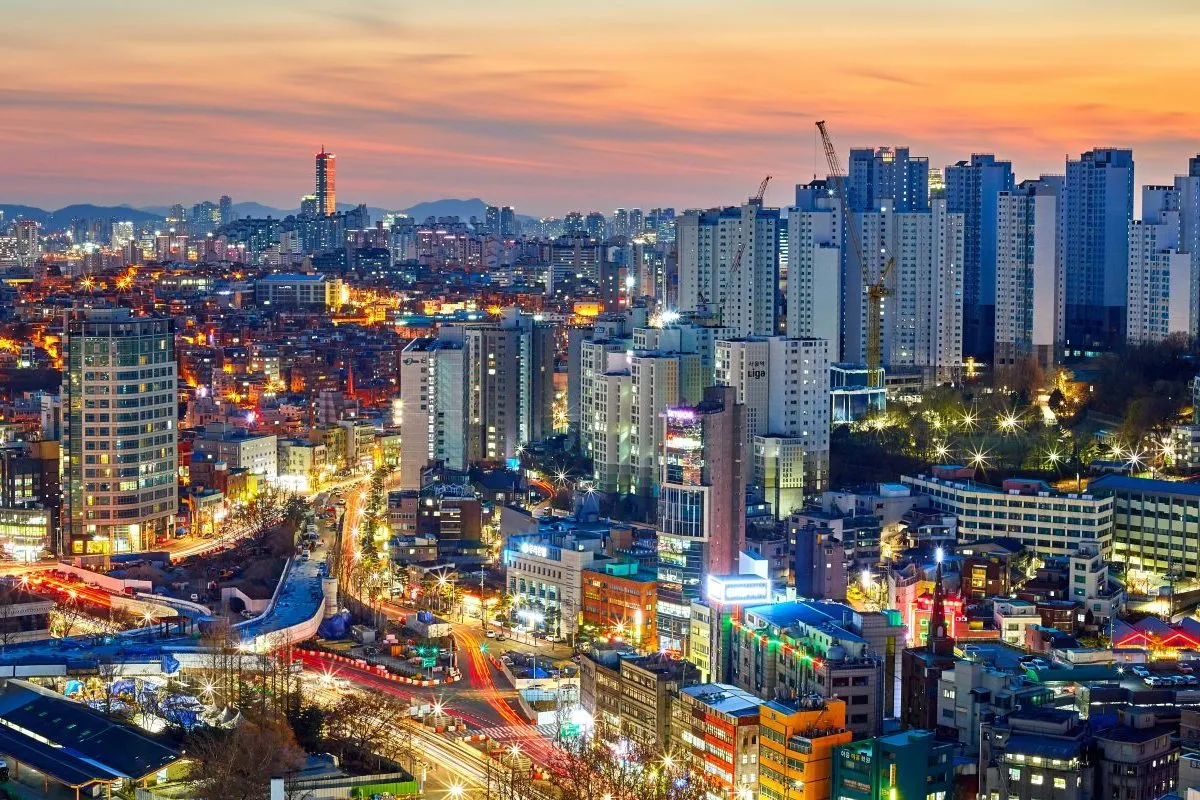The Dawn of AI in Travel – and in Our Daily Lives – Suddenly Became Very Real This Weekend
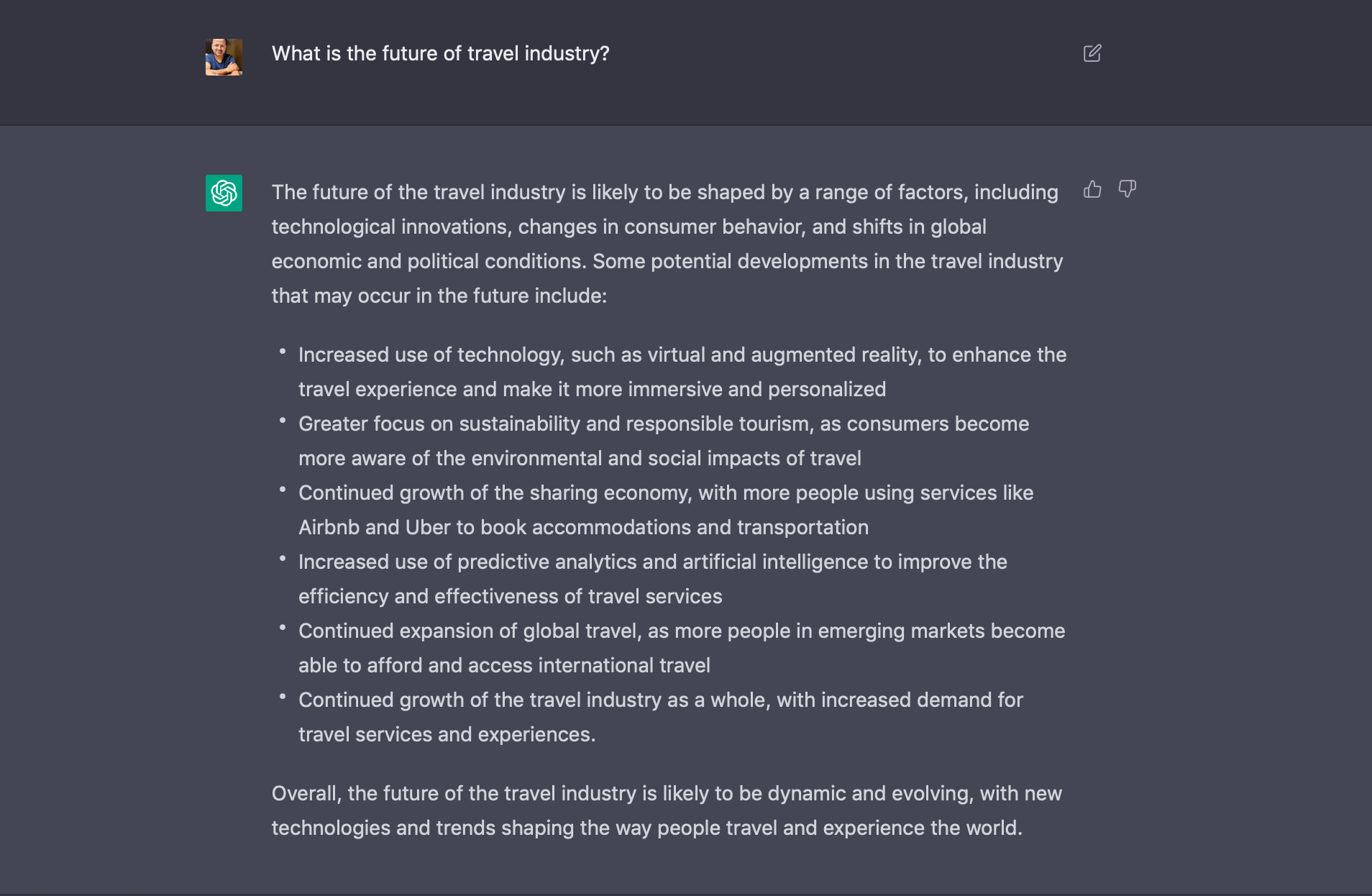
Skift Take
Something shifted this weekend, the zeitgeist on the real possibilities of artificial intelligence (AI) became excitingly, palpably and perhaps scarily real these past few days, with the launch of the first large-scale, general purpose chatbot using OpenAI's GPT3 AI engine.
The free and open-to-anyone ChatGPT service launched for public has generated lots of buzz for the accuracy (and sometimes lack of) of the responses that you can get from the chatbot in a natural conversational mode and this weekend was where people had the time to play with it. It crossed a million users in these past few days and spawned a million memes about it, mostly on Twitter.
Instead of us explaining what all the implications mean for the sector we cover, travel, we figured best to ask the chatbot about the larger sector of generative AI — which includes text, images, audio and video — and what this means for the current and future of travel. And as you will read below, the answers are pretty accurate, common sense and informational, even if somewhat repetitive and generic.
Let's get started, what is Generative AI, the sector that is getting so much investment and buzz in larger AI sector these days?
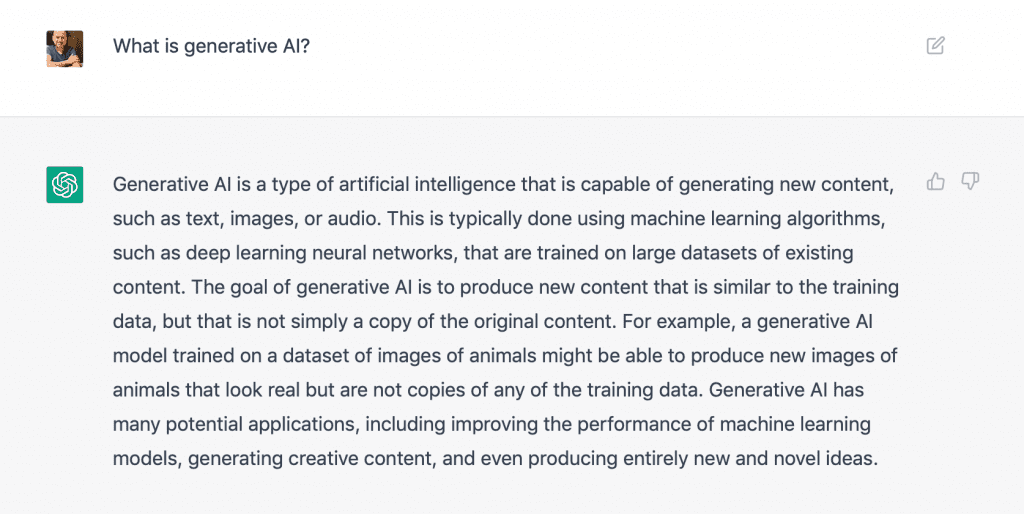
What are the applications of generative AI for the travel industry?
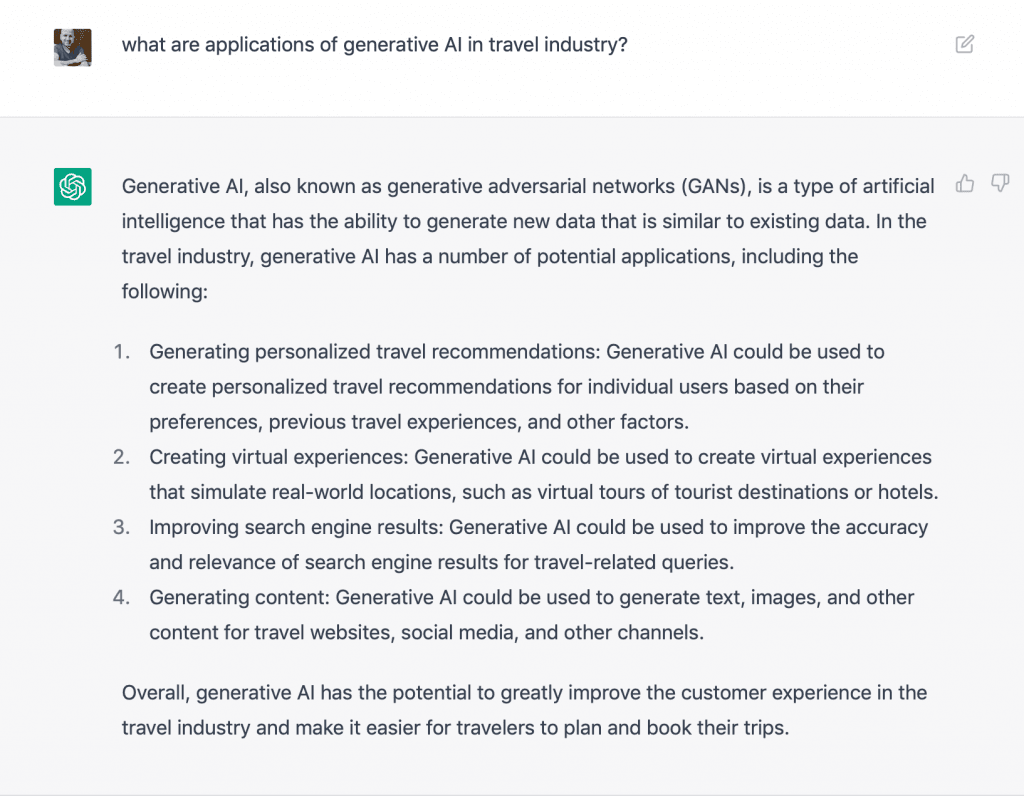
What are the applications of Generative AI in the airline industry?
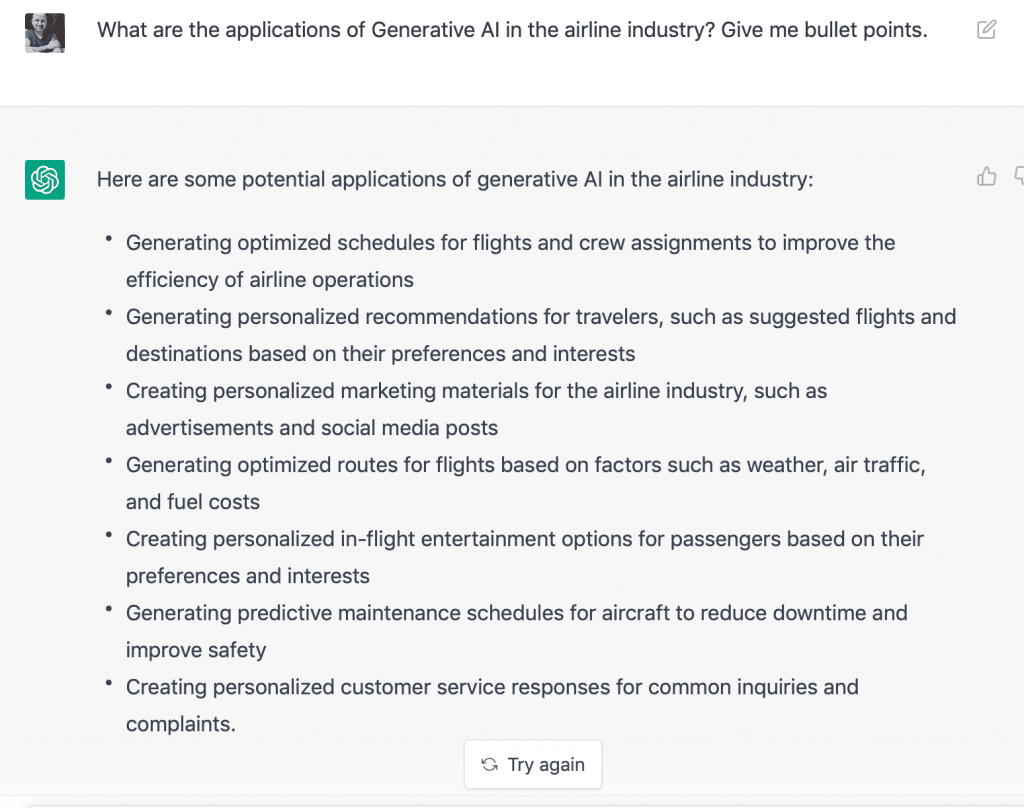
What are the applications of Generative AI in aircraft design?
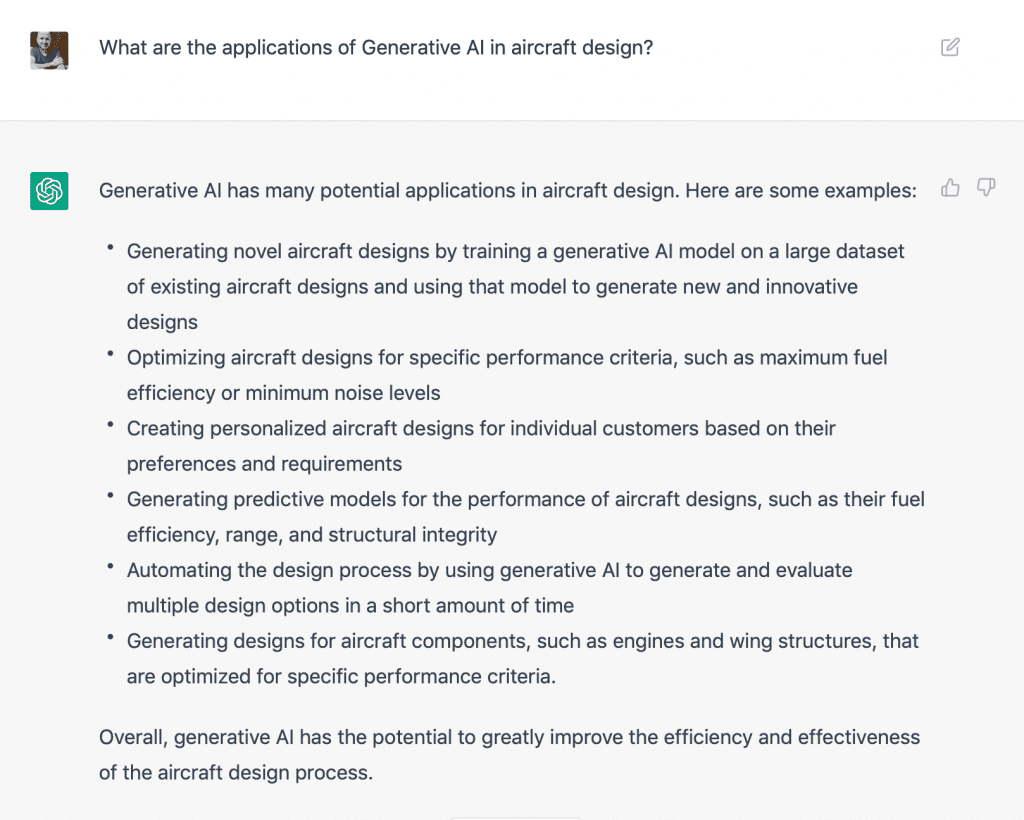
What are the applications of Generative AI in the airport sector?
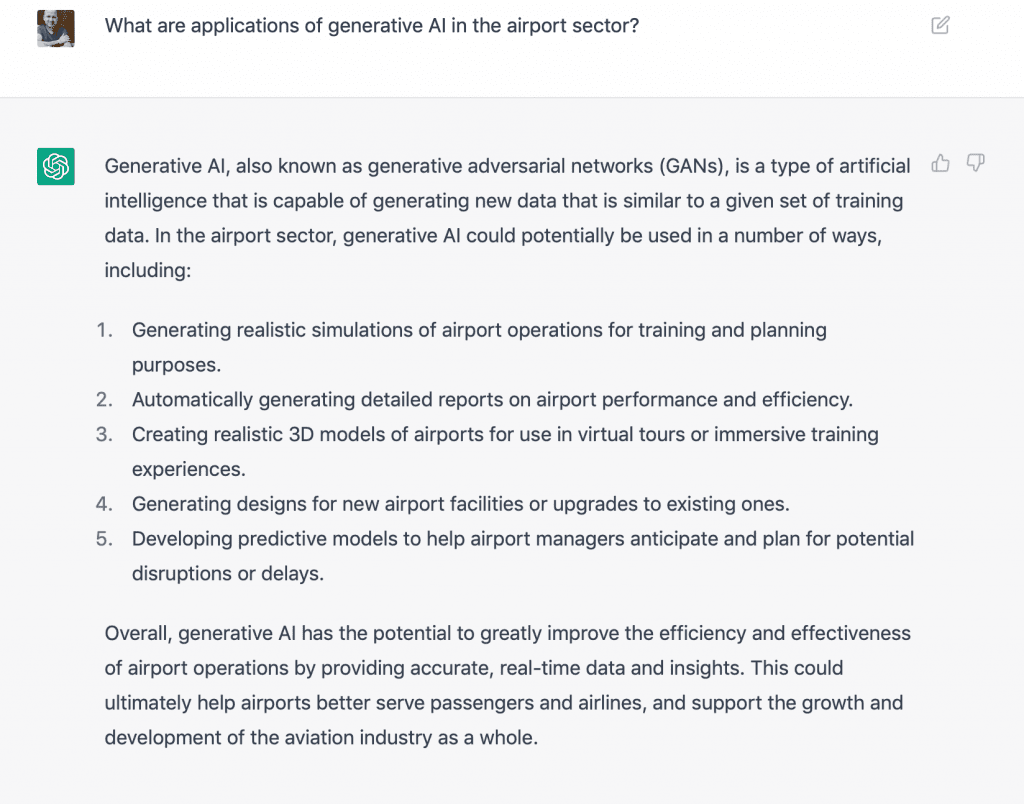
What are the applications of generative AI in the hotel sector?

Of course wherever there is AI, there is always marketing that can be optimized using it.

This one kinda blew my mind for our sector for its accuracy: What are solutions to Overtourism in destinations?

Of course topic du jour in the travel sector: How can travel become more sustainable?
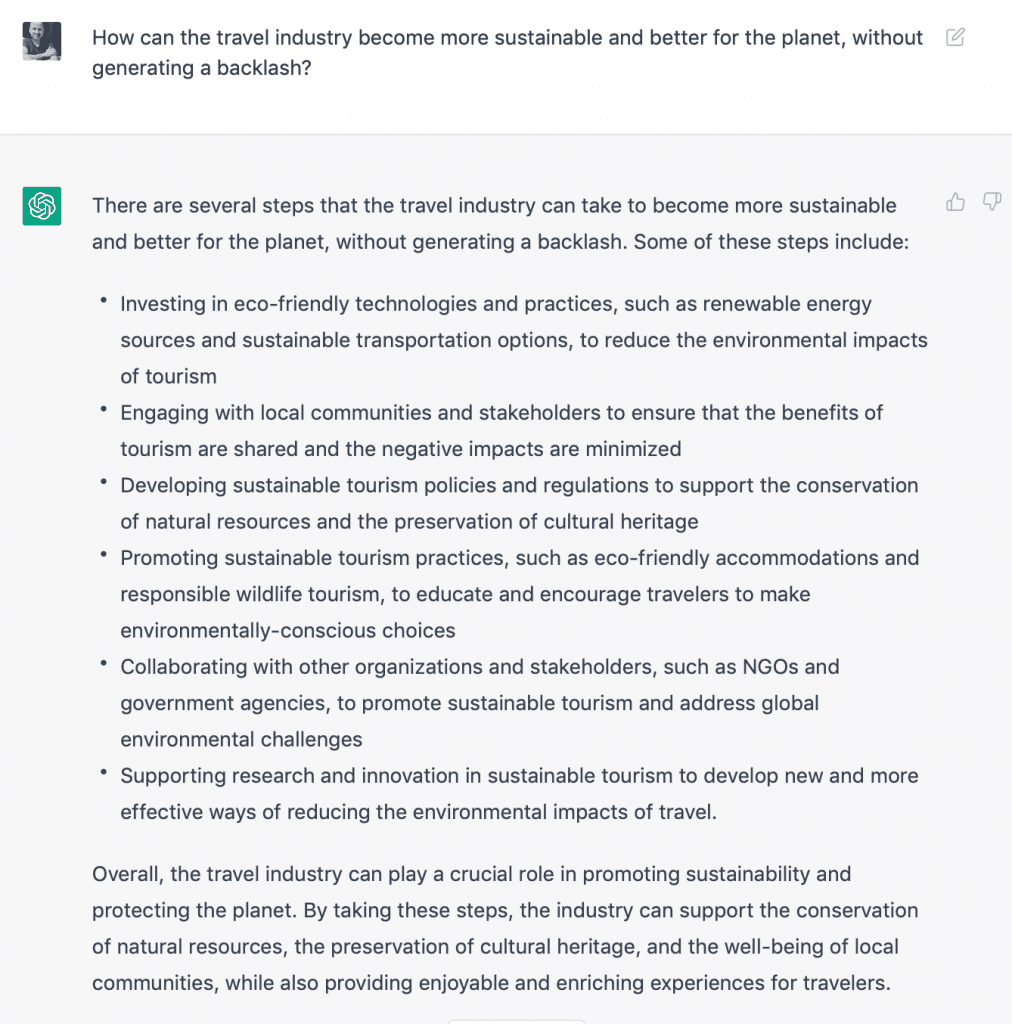
Now lets put it to use in itinerary generation, the most common user case of AI in travel it has been citing above:

Stay tuned to Skift for a lot more coverage on what these rapid changes in consumer and mass use of AI mean for the travel sector.




